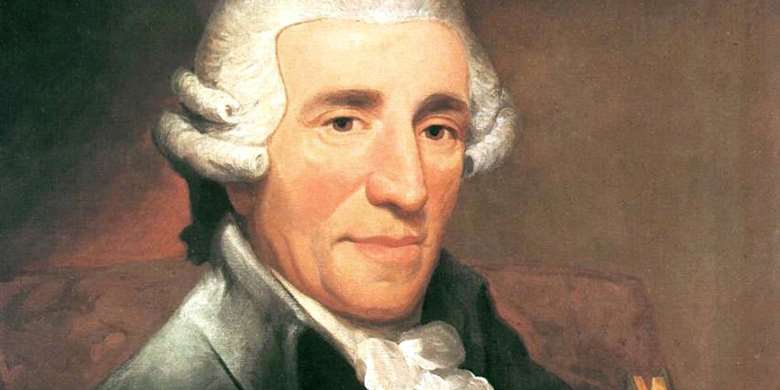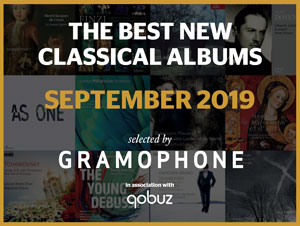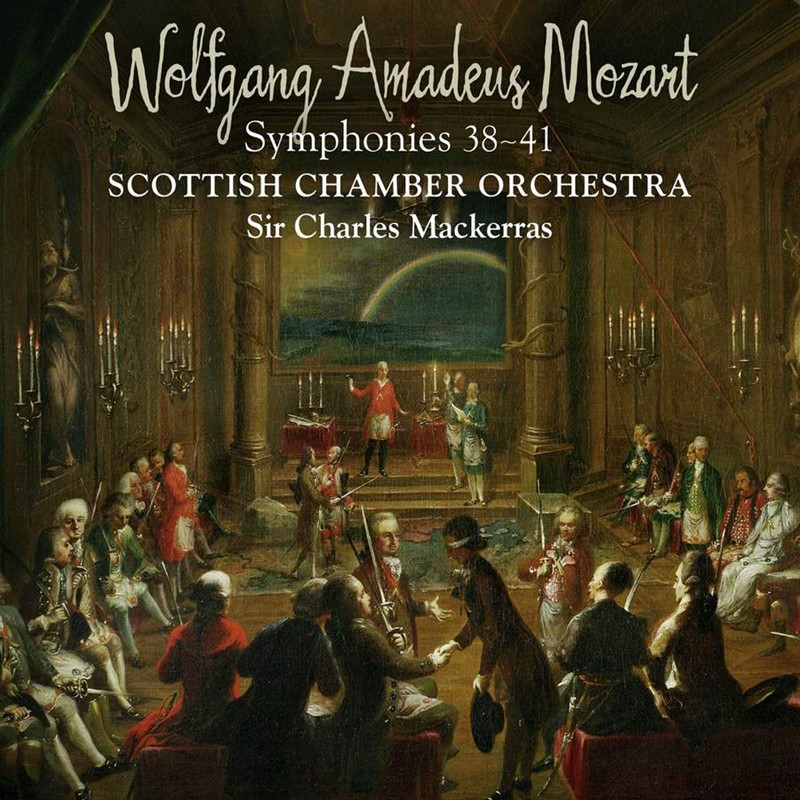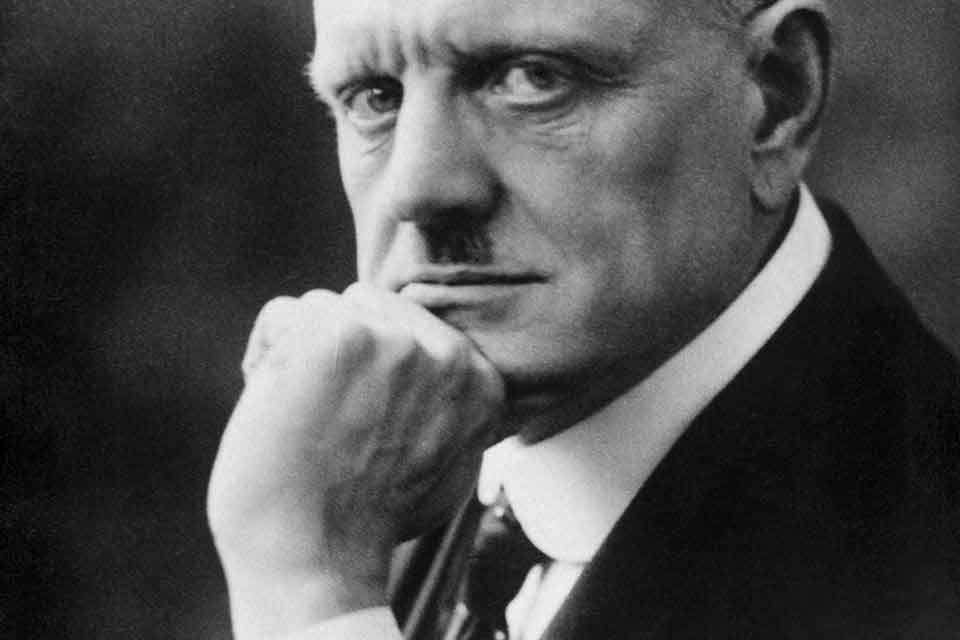Top 10 symphonies
Wednesday, October 19, 2022
Tracing the evolution of the symphony from Haydn to Prokofiev through some of the most outstanding classical recordings in history

A brief history of the symphony
The symphony first appeared on programmes – inevitably in aristocratic settings – during the early years of the 18th century, often a natural development from the Italian overture (which usually comprised three movements). By the 1770s, the four-movement form we usually think of was established and one of its earliest (and still one of the greatest) exponents was Joseph Haydn who wrote 104 symphonies. Mozart’s 41 took the symphony on a step and, as the 18th century dawned, Beethoven infused the form with a new expressivity and power. His Third Symphony, known as the Eroica, burst into the world in 1805 and extended the length of the symphony dramatically (its first movement alone is longer than many complete symphonies written a couple of decades earlier). Beethoven’s nine symphonies remain the pinnacle of the form, performed daily and still providing spiritual nourishment to audiences of every nationality and creed.
The 19th century found most of the great composers writing symphonies – Schubert (eight), Brahms (four), Schumann (four), Mendelssohn (five), Tchaikovsky (six, seven if you include the Manfred), Dvořák (nine) for example.
The four movements – usually fast, slow, faster, faster – often included a dance form as one of the central movements (usually third), and often a theme and variation form might be included (Beethoven’s Third) or a variant such as a passacaglia (Brahms’s Fourth). As a vehicle for expression, the symphony had assumed a major role and reached its apogee in the years surrounding the turn of the 20th century. Bruckner’s nine extended the length yet again, and Mahler, as he famously told Sibelius, believed the symphony ‘should embrace the world’: he used his 10 (or 11 if you include the song-symphony Das Lied von der Erde) to explore psychological states and philosophical questions that still mesh powerfully with audiences 100 years after his death.
The 20th century found the ‘centre of gravity’ of symphonic writing shift north from its Austro-German heartland to Scandinavia and Russia/Soviet Union. The Finn Sibelius wrote seven, the Dane Nielsen six, and the Soviets Shostakovich (15) and Prokofiev (seven) contributed greatly to the genre. The French and Italians largely ignored the form, though it was taken up enthusiastically in America (Copland, Hanson, Bernstein, Harris, Piston and others). In the UK – and largely from practitioners of late-Romantic, tonal writing – the symphony flourished in the 20th century: Elgar wrote two, Bax seven, Walton two, Vaughan Williams nine (continuing to write symphonies when the musical public had imagined he’d delivered his last word in the genre) and Malcolm Arnold (nine).
Today’s major symphonists – and the form has rather fallen from favour (partly no doubt to constraints of time and budgets!) – include Philip Glass, Leif Segerstam, Per Nørgård and David Matthews.
Top 10 symphonies


Haydn Symphony No 60 in C major 'Il distratto'
Il Giardino Armonico / Giovanni Antonini
'This is the six-movement symphony that famously features the orchestra tuning up a few bars into the finale, not to mention itself becoming distracted, in the first movement, on an unresolving subdominant chord before suddenly realising why it had gone there in the first place. It would be easy to play this purely for laughs but Antonini and his players are suitably straight-faced, and the jokes come off all the better for it...'

Mozart Symphony No 40
Scottish Chamber Orchestra / Sir Charles Mackerras
'There is no need to argue the credentials of Sir Charles Mackerras as a Mozart interpreter, so let us just say that this double CD of the composer’s last four symphonies contains no surprises – it is every bit as good as you would expect. Like many modern-instrument performances these days it shows the period-orchestra influence in its lean sound, agile dynamic contrasts, sparing string vibrato, rasping brass, sharp-edged timpani and prominent woodwind, though given Mackerras’s long revisionist track-record it seems an insult to suggest that he would not have arrived at such a sound of his own accord. ...'

Beethoven Symphony No 5
Pittsburgh Symphony Orchestra / Manfred Honeck
'Honeck has a wonderful ear for detail, be it quietly thematic or utterly bizarre, as in the piccolo’s crackerjack contributions to the finale of the Fifth, whose final chord nonetheless manages to offer an inch-perfect balance between piccolo and drum...'
Watch – Beethoven's Fifth: interpreting genius (with James Jolly and Rob Cowan)


Dvořák Symphony No 9, 'From the New World'
Berlin Philharmonic Orchestra / Rafael Kubelik
'The playing of the Berlin Philharmonic is marvellously eloquent and, as is often the case, a joy in itself. The woodwinds phrase with great poetic feeling and imagination, and all the departments of this great orchestra respond with sensitivity and virtuosity...'

Tchaikovsky Symphony No 6, 'Pathétique'
Musicaeterna / Teodor Currentzis
'You may be inclined to adjust your set from the very opening, and you should: the disc demands a high playback level when the neighbours are out; or, for a sleepless night, on decent headphones...'


Bruckner Symphony No 5
Lucerne Festival Orchestra / Claudio Abbado (DVD/Blu-ray)
'Abbado himself is invariably the main focus of attention and he’s wonderful to watch: theatrical posing and outsize gestures are evidently foreign to his nature. What you see is clear cueing, a discernible beat and subtle facial responses. The players vary in age and appearance: no stiffening dress-code clamps down with unwarranted formality, just well-dressed men and women totally into the business of making great music. And boy, do they deliver!...'

Mahler Symphony No 4
Sabine Devieilhe sop Les Siècles / François-Xavier Roth
'I absolutely adored this performance. No equivocation. Hearing the music as Mahler might have heard it – and indeed imagined it – both in the very particular sound of period instruments and the extraordinary impact that has on phrasing and expression makes it sound more radical in ways that the supersonic amplitude of today’s orchestras tends to obscure...'

Sibelius Symphony No 5
Oslo Philharmonic Orchestra / Klaus Mäkelä
'Leonard Bernstein first alerted me to the Dionysian dance that emerges from the first movement’s celebrated sunrise and carries us through to the exultant coda – and so does Mäkelä. The gradual accelerando should and does here feel organic, a gathering of energy towards the brilliant trumpet-led peroration. In the middle movement, where subtext is all, the big central modulation is ear-opening in its harmonic intrigue; and come that uplifting finale and famous coda Mäkelä and his Olso brass rejoice magnificently in the most consonant dissonance in all music. Those final chords sound, as they should, like a cosmic punctuation of silence...'


Prokofiev Symphony No 5
Berlin Philharmonic Orchestra / Herbert von Karajan
'Karajan’s 1968 Prokofiev Fifth is a great performance. Whenever one compares it with later versions inevitably the DG account holds its place at the top of the list. The analogue recording was uncommonly good for its time. With the advantage of the Jesus-Christus Kirche acoustics, the sound is full and spacious, naturally defined and balanced; there is a slightly leonine quality to the strings and a natural bloom on woodwind and brass. Karajan lived with the work for a decade before he recorded it and this is immediately apparent in the way the first movement unfolds so inevitably...'

Shostakovich Symphony No 10
Boston Symphony Orchestra / Andris Nelsons
'Be in no doubt that this is one of the finest performances that I have ever heard of this great piece (it must surely bid fair for ‘best in catalogue’) and to say that it augurs well for Nelsons’s future with the Boston Symphony is an understatement and then some...'
Never miss an issue of the world's leading classical music magazine – subscribe to Gramophone today













